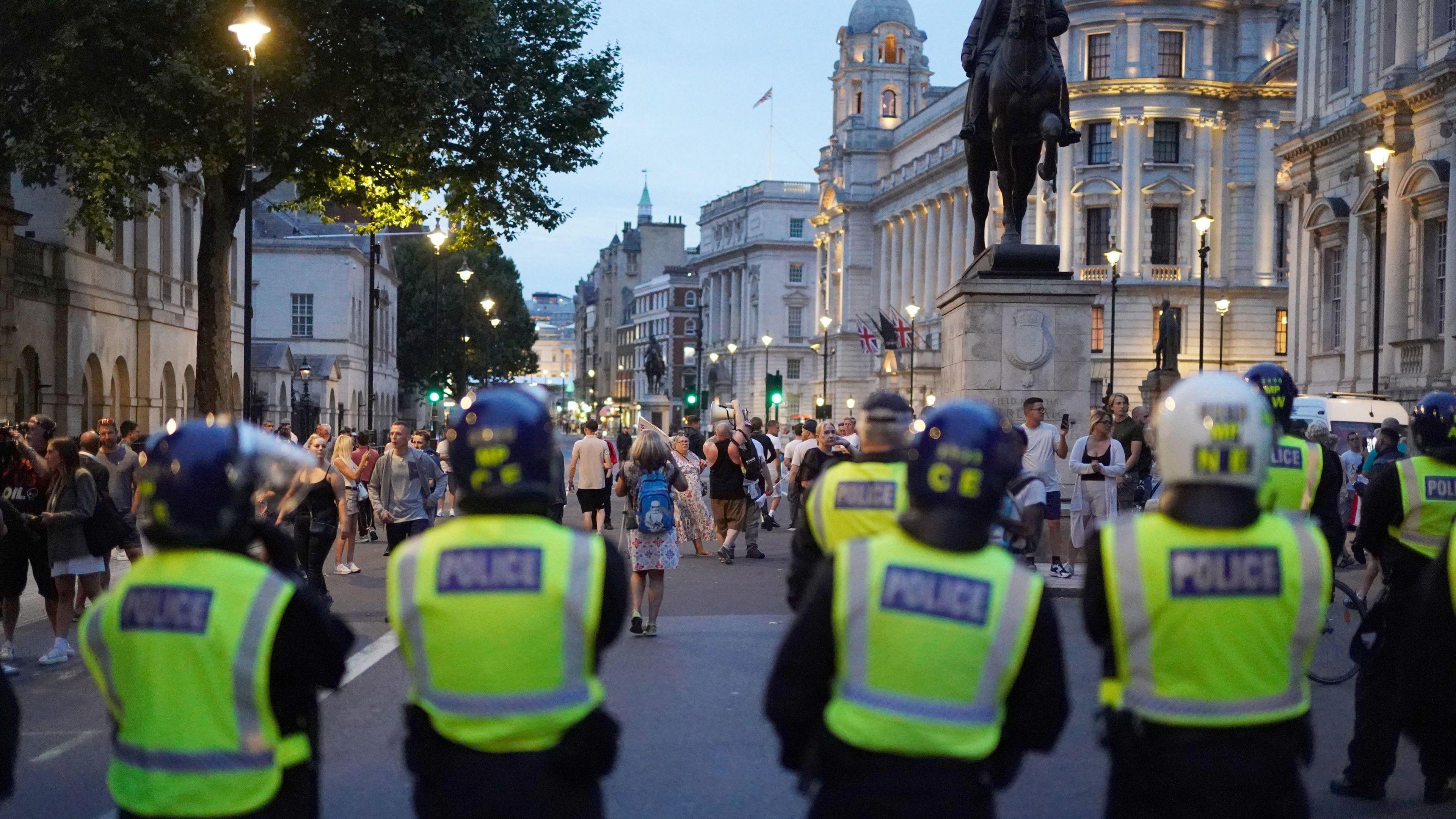London communities brace themselves over unrest fears
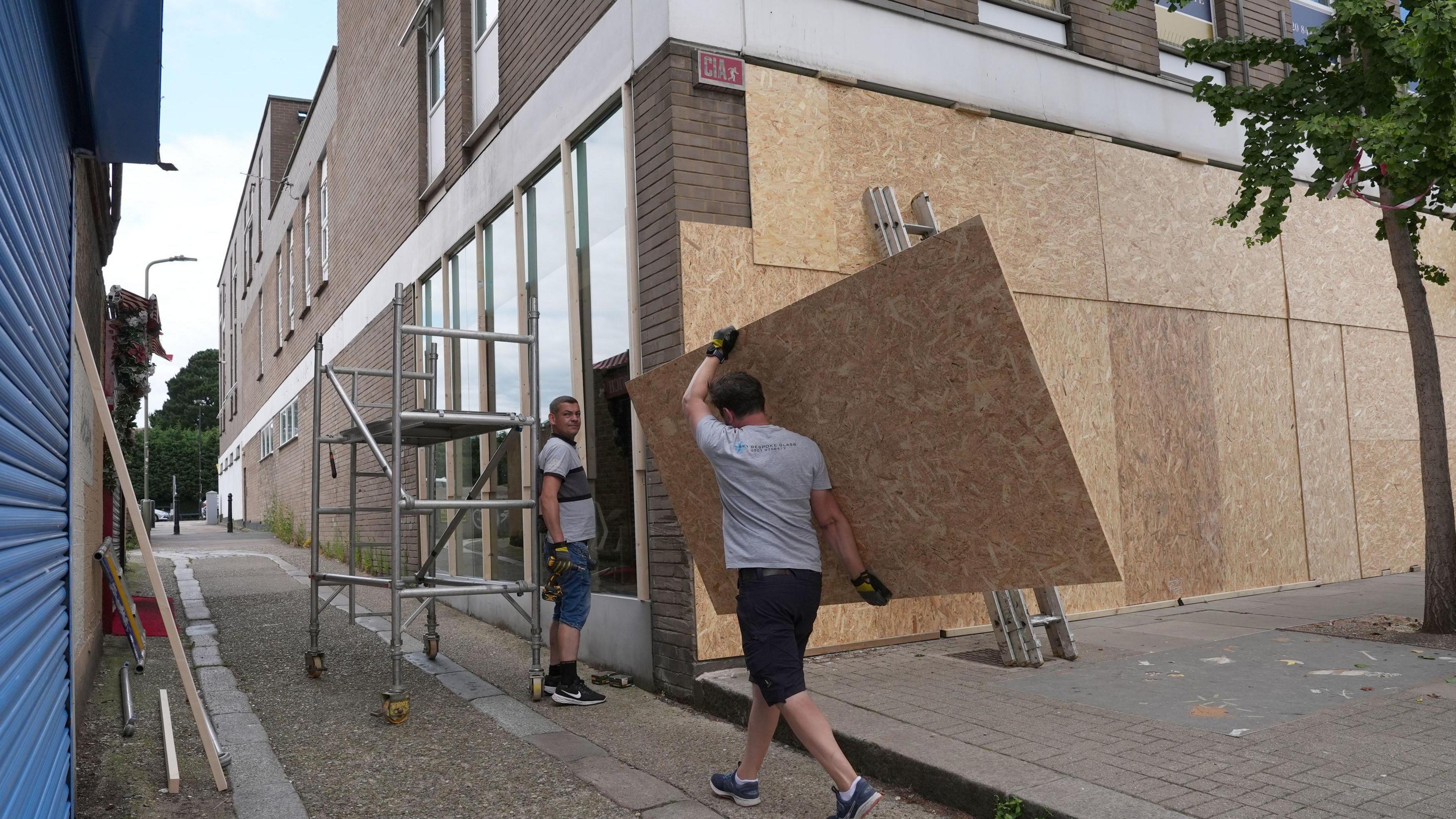
Windows are being boarded up at Foxtons in North Finchley as speculation around planned disorder across London grows online
- Published
Residents and business owners in parts of London have said they are concerned about the possibility of violent disorder on Wednesday evening, after details of plans were leaked online.
Violent scenes erupted across the country last week after the fatal stabbing of three girls in Southport - with unrest said to have been fuelled by misinformation online.
Shop owners have been seen boarding up businesses, and others have closed early for the day. One lawyer, who works with asylum seekers and refugees, says she has been told by police she is "at risk" and she feels "petrified".
The Metropolitan Police said it had more than 1,300 public order officers ready to deploy across the capital.
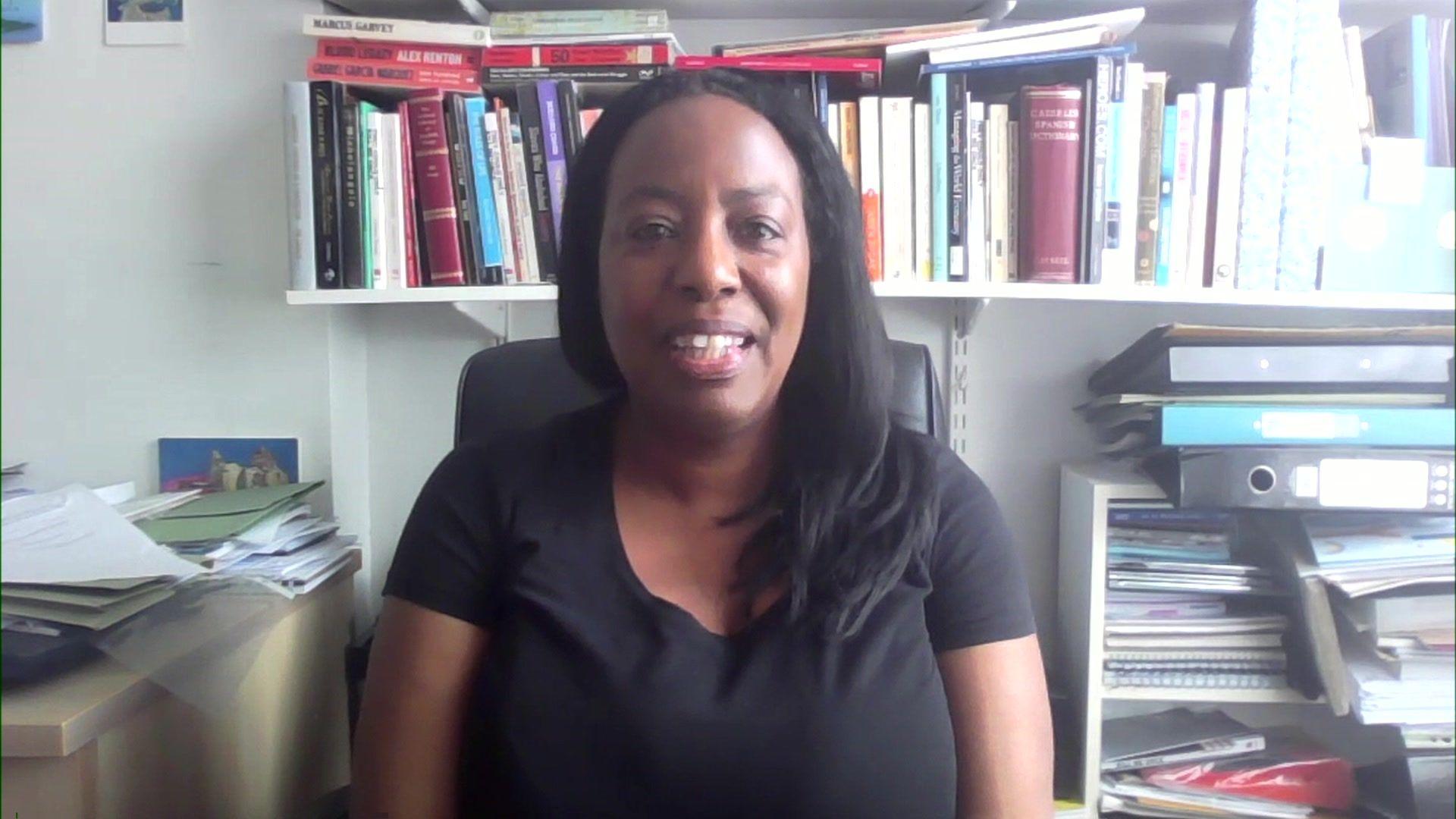
Immigration lawyer Jacqueline McKenzie has said she fears for her safety
Jacqueline McKenzie, an immigration lawyer in central London, told the BBC she has had to take extra security measures in her offices and in her home this week.
She said: "I'm known as a lawyer who works with asylum seekers and refugees - there has been an assessment that I'm likely to be at risk.
"There is a list (of targets) going round and the police have said this is to be taken seriously - what they have named is immigration lawyers specifically."
Ms McKenzie described how she has felt "petrified" leaving work this week, and has been taking taxis, rather than public transport.
"It's just not the way to live," she said.
"When you think we're put in this position because a particular base has been riled up by some sections of the media, some politicians and some activists - that makes it all the more disturbing - we are in a really bad place."
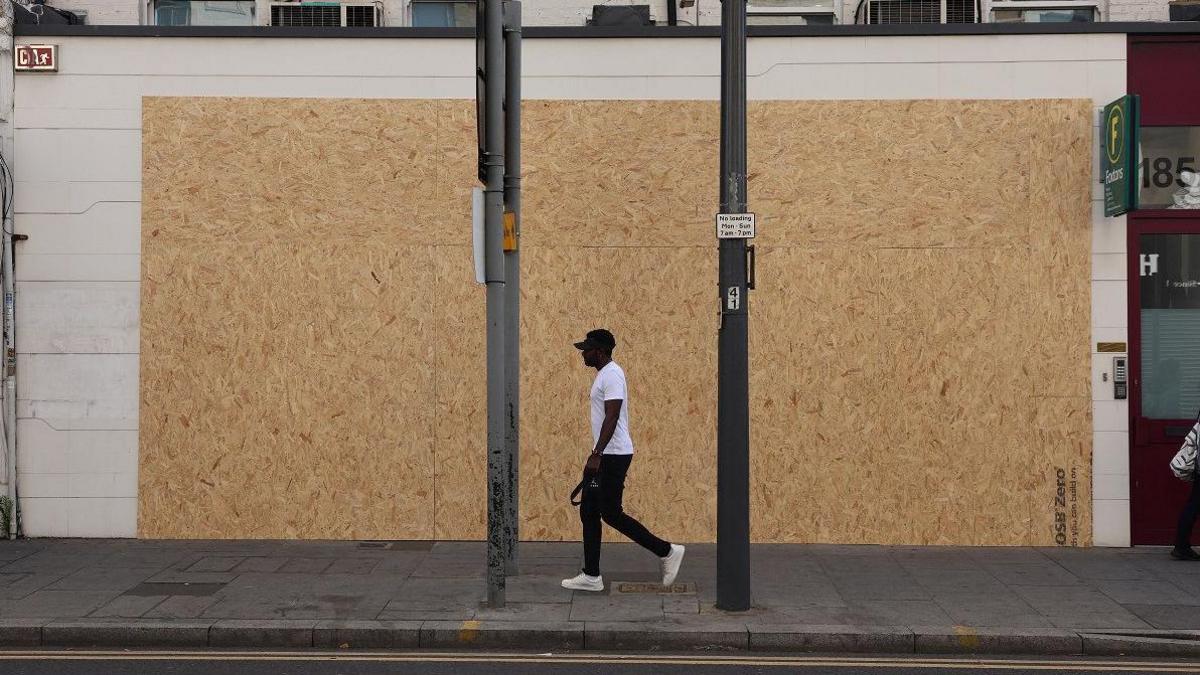
An immigration bureau in Waltham Forest has also been boarded up
In communities across the capital, residents have said they feel unsafe following violent disorder across the country over the last week.
Lisa, who is the co-chair of the Harlesden Safer Neighbourhood Panel in north-west London, said: "I worry for the people of my community - I worry that this anger and and real violence really is going to show up in my local area, which I really don't want."
She said to those wanting to start trouble: "You need to go away because you're not representing all of the people of this community who live in harmony."
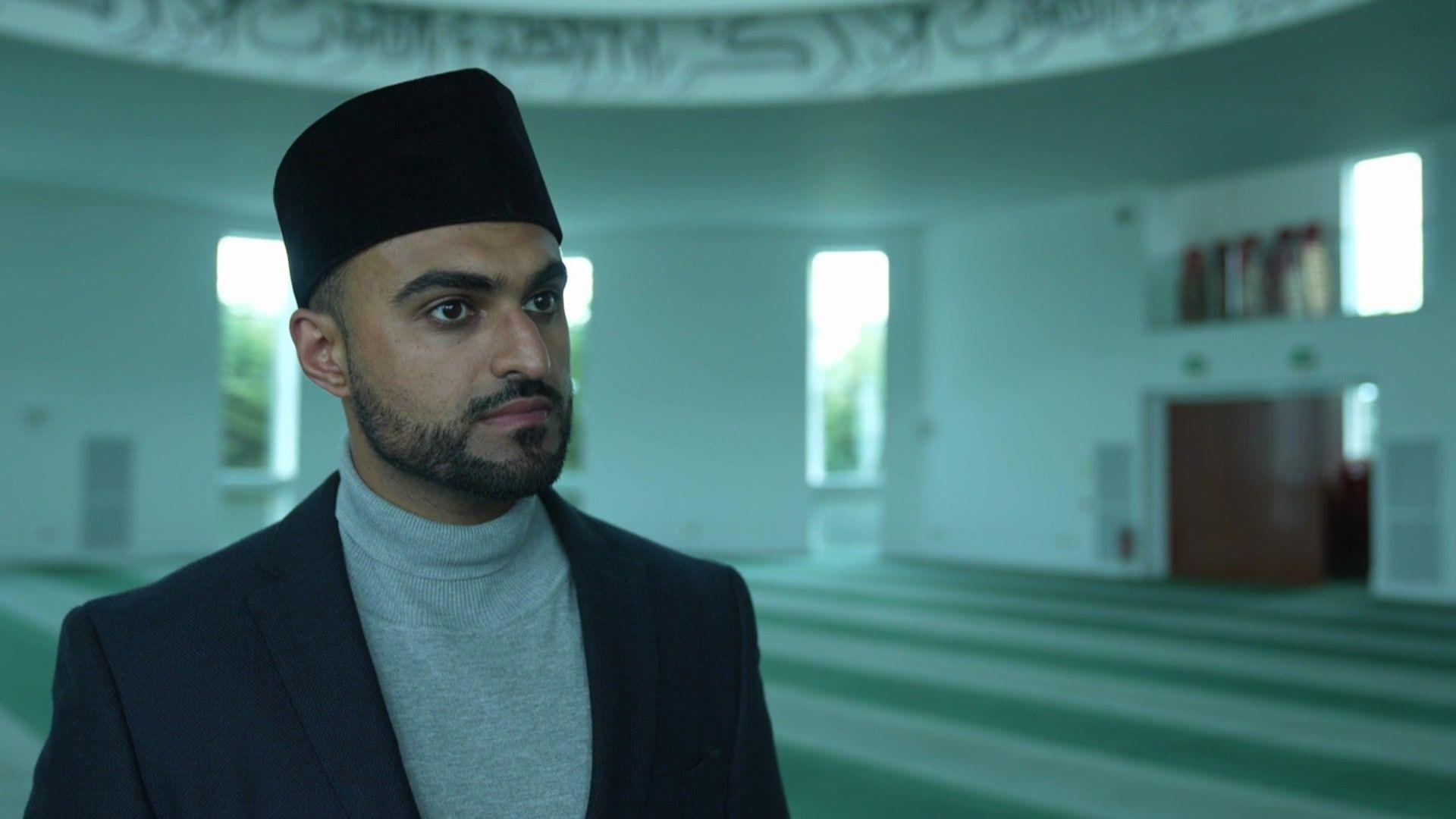
Imam Sabah Ahmedi said it was "crucial that we stand together against extremism"
The Imam of Britain's largest mosque, the Baitul Futuh mosque in Morden, south London, said the mosque, and others, were doing "what we can" to protect worshipers.
Imam Sabah Ahmedi told the BBC: "I think as a Muslim community across the country we are worried about people’s safety - I know there are Muslim women who are not leaving their house on their own.
“The violence that’s happening outside is not what we expect to happen on our streets."
He added: "It’s sad to see we are living in times where we are worried for our safety – it’s sad to see that people are only letting white people drive their cars in certain places, it’s sad to see that brown people’s property is being destroyed and it’s worrying to see that hotels are being set on fire where migrants are staying.
"It’s really important to remember that migrants have made a positive contribution to our society and we can see that by looking at the NHS – and it’s crucial that we stand together against extremism."
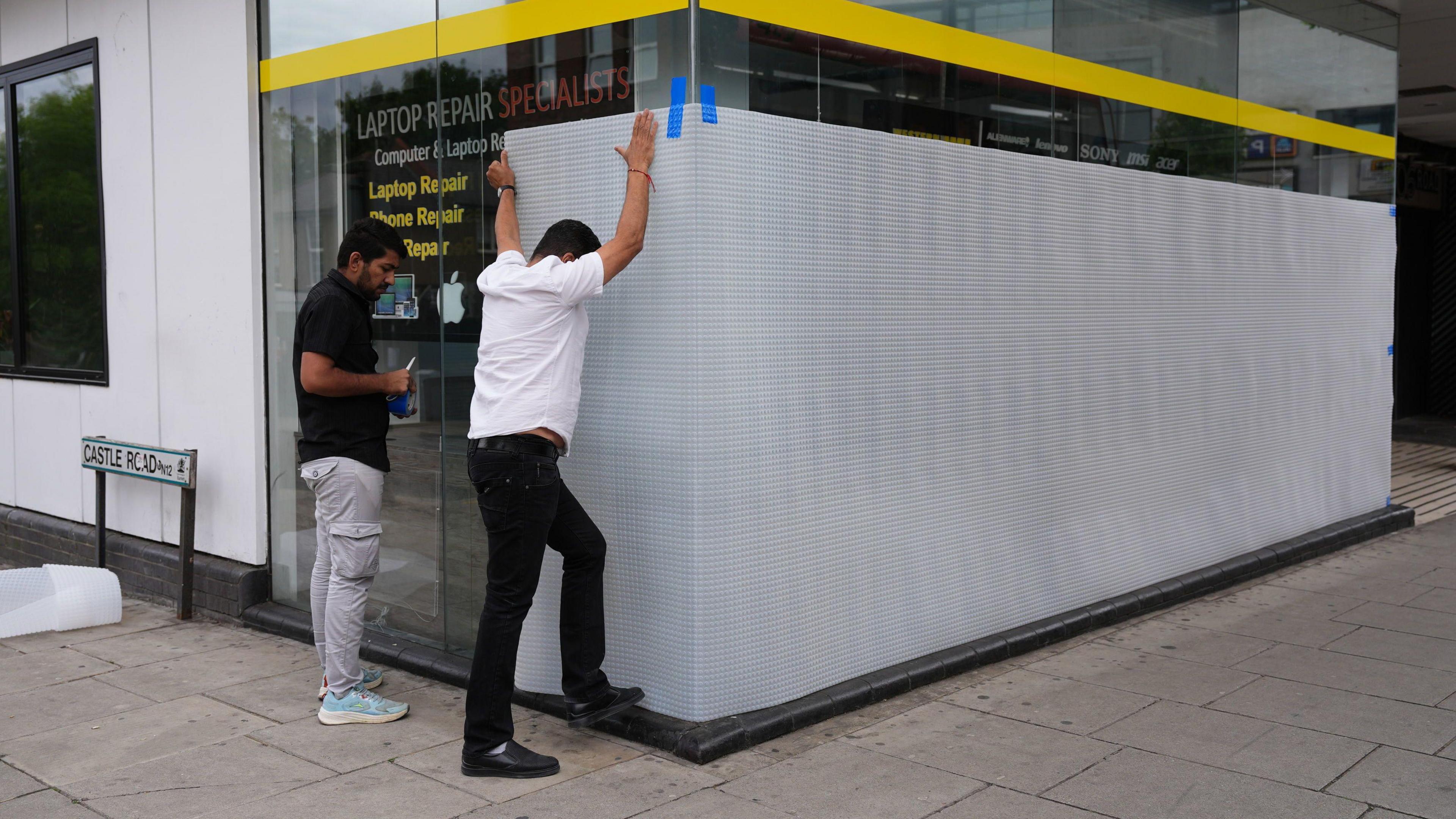
Other shops were also being boarded up in North Finchley on Wednesday afternoon
Deputy Assistant Commissioner Andy Valentine, from the Met, said the 1,300 public order officers the force had ready to deploy across London were in addition to "thousands already working in our communities".
“We will not tolerate any disorder and will make arrests," he said.
He added: "We are also using a range of specialist teams including mounted units, dog handlers, intelligence experts and evidence gatherers.
"We will be using retrospective facial recognition to help officers identify those behind criminal disorder. This technology can be used even when offenders are wearing masks."
The police urged the public not to share "inflammatory" online speculation.
Listen to the best of BBC Radio London on Sounds and follow BBC London on Facebook, external, X, external and Instagram, external. Send your story ideas to hello.bbclondon@bbc.co.uk, external
- Published7 August 2024
